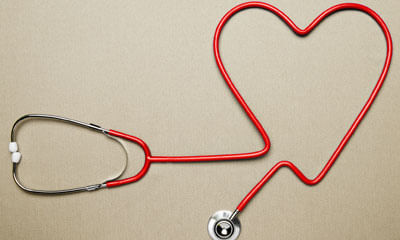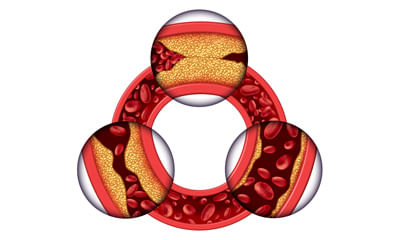Top Questions on Arteries Imaging
I am weak by heart .in a stressful situation my heart has palpitations heart beat increase and little bit pain also I fe ...
Ask Free Question
I am sorry to hear about your concern but will be happy to assist you. This stress can also cause changes that promote the buildup of plaque deposits in the arteries. Even minor stress can trigger heart problems like poor blood flow to the heart muscle. This is a condition in which the heart doesn't get enough blood or oxygen. And, long-term stress can affect how the blood clots. Let's connect over a call so that we can discuss your concern in details and make a treatment plan for you.
Level 2 scan at 18 weeks 5 days showed decreased blood flow in right artery. Other artery was normal. Everything else wa ...
Ask Free Question
Pt with decreased uterine artery bld flow are at a slight increased risk of preterm delivery, intra uterine growth retardation or pregnancy induced hypertension. You should take a protein rich diet ,salt restricted diet. Take arginine sachet daily regular antenatal checkup.
Can Arteries plaque and ECG level changes can be cleaned naturally with foods only and how much time it will take. Any n ...
Ask Free Question
No... It is not possible... And even not by a single medicine... You will need Treatment Yoga and . exercise...
5 months ago My father total serum cholesterol was 391, after getting through the report doctor prescribed Statins table ...
Ask Free Question
No issues. Low cholesterol has no problems. But yes you can decrease the dose of the statins by half and recheck the lipid profile after 3 months. Long term statins treatment also has side effects. Also you need to understand about cholesterol Cholesterol is a waxy, fat-like substance that occurs naturally in all parts of the body. Your body needs some cholesterol to work properly. But if you have too much in your blood, it can combine with other substances in the blood and stick to the walls of your arteries. This is called plaque. Plaque can narrow your arteries or even block them. High levels of cholesterol in the blood can increase your risk of heart disease. Your cholesterol levels tend to rise as you get older. There are usually no signs or symptoms that you have high blood cholesterol, but it can be detected with a blood test. You are likely to have high cholesterol if members of your family have it, if you are overweight or if you eat a lot of fatty foods. You can lower your cholesterol by exercising more and eating more fruits and vegetables. You also may need to take medicine to lower your cholesterol. High LDL high cholesterol put you on a higher risk of atherosclerotic diseases and heart attacks especially if you have other is factors including hypertension diabetes or a history of smoking so I would advise you to start taking statins which are cholesterol medications the dose of which depends upon your cholesterol levels also you need to start changing your dietary habits and include a regular physical exercise at least 45 minutes a day 5 days a week into your schedule nonetheless you have to stop taking fatty and junk food good luck Check out - Simplified health explanation videos on my YouTube channel And Do not forget to Subscribe for upcoming videos.
My dad had arteries blockage which TVD (triple vessel disease) all 3 arteries are blocked 2 major and one minor doctors ...
Ask Free Question
In coronary artery disease (CAD), the arteries that supply blood and oxygen to your heart muscle grow hardened and narrowed. You may try treatments such as lifestyle changes, medicines, and angioplasty, a procedure to open the arteries. If these treatments don't help, you may need coronary artery bypass surgery. The surgery creates a new path for blood to flow to the heart. The surgeon takes a healthy piece of vein from the leg or artery from the chest or wrist. Then the surgeon attaches it to the coronary artery, just above and below the narrowed area or blockage. This allows blood to bypass (get around) the blockage. Sometimes people need more than one bypass. The results of the surgery usually are excellent. Many people remain symptom-free for many years. You may need surgery again if blockages form in the grafted arteries or veins or in arteries that weren't blocked before. Lifestyle changes and medicines may help prevent arteries from becoming clogged again.


